Wire - Interview with Colin Newman
by Mark Rowland
published: 12 / 2 / 2007
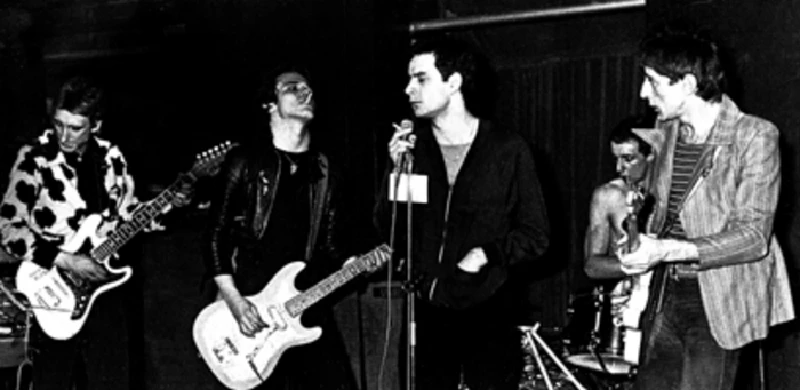
intro
Wire’s career spans 30 years, and has extended from punkish early albums to electronic, melodic records in the 80's to more taut recent records. Mark Rowland talks to Colin Newman from the group about the re-release of the band's early catalogue with extra live recordings and their continued impact
Wire’s career now spans 30 years, from their punkish early output to their more electronic, melodic 80's records, to their taut, jerky modern albums. Yet, to a large proportion of the music press and the general record buying public, Wire is known for one album; ‘Pink Flag’. Their second and third albums, ‘Chairs Missing’ and ‘154’ are also remembered quite well, but that’s as far as it goes. These three albums were re-released last year, to critical acclaim, and proved reasonably popular with the record buying public. But Wire wanted to do more for their diehard fans - those who had stuck with them for all the albums and periods in Wire’s career. So they decided to do a box set based around their late 70's recordings. “Our label Pink Flag became the US licensee for the first three titles, so we thought it would be really nice to do a special mail-order edition, a box set,” says Wire’s front man Colin Newman. “We wanted the box set to have something in it that wasn’t part of the first three cryptic things.” The band had two live recordings that fit nicely into the ‘Pink Flag’/’Chairs Missing’ period, so decided to include them into the box - something a little more exclusive for their devoted fan base. “'Live at the Roxy' is before ’Pink Flag’, Live at CBGBs is between ’Pink Flag and ’Chairs Missing’, and the older ‘Live at the Rock Palace’ video comes between ’Chairs Missing’ and ‘154’. So we had this idea of a sort of alternative trilogy. That fitted quite nicely with the studio albums, and collectors especially who had the original live video wanted the "Live at the Roxy' and 'Live at CBGBs'”. With some fans, however, this move didn’t go down well. By the time the box set had come out, several fans had already bought the re-issued albums, and weren’t happy that they were now available with unreleased material. “You have to realise we have a totally crazy fan base, and the minute the box set was released we started getting complaints. ‘I’ve already bought the remasters. I’m not buying the box set just to get the live albums. You’ll have to do something for us,’ while at the same time the dollar is sinking like a stone, so American fans are paying like $100 for the box set, which is quite a lot for them, whereas British punters who are paying 50 quid for it are thinking ’for five albums that’s pretty good value.’ It was a juggling thing, and we took the decision to release the live albums separately, but we wanted to give it a decent space between the box set and the live albums so that the people who bought the box set didn’t feel immediately like we were jumping on their graves. You get attacked from every side for this kind of stuff. You get people who are complaining that we didn’t release the live albums anyway and that we’re just trying to screw the fans, and then the other lot of people saying ‘I bought the box set and now you’ve put out the live albums, are you trying to annoy me?’” Such is the politics of Wire and their loyal followers. The band has been going for so long now that their fan base has become truly fanatical - a phenomenon that only really occurs after a band has been going strong for over ten years. As Wire have been going for thirty, they have attracted fanatics from about three separate generations, with each having their own particular favourite incarnation of Wire and what kind of band it is. Therefore, Newman receives a LOT of complaints. “I actually find myself answering all those queries personally,” says Newman. “I usually take quite a hands-on approach and I think people really appreciate it. There’s a lot of different people to please - if you put ten Wire fans in a room, they’d have ten different opinions on their favourite tracks, even what their favourite Wire period is. A lot of people think we made only one album in the 70's, but most Wire fans don’t really like 'Pink Flag'. They prefer the other stuff, and they’re fiercely divided as to what they actually like. Pleasing them all is a bit like trying to herd cats, really.” The double-disc live record, which includes two live sets at London’s Roxy in 1977 and one at CBGB’s in 1978, is a beautifully packaged insight into a band who were at - depending on your opinion, of course - a creative peak, certainly their commercial peak. It also gives you a good idea of how the band’s sound evolved between ‘Pink Flag’ and ‘Chairs Missing’. It also offers a rougher-edged alternative to the studio albums themselves. “Whatever way you cut it, though the 70's Wire output is being put out in America through Pink Flag, 70s Wire made corporate releases,” says Newman. “Whereas people’s feelings about Wire is that they belong to the independents. They want to deconstruct that trilogy and see it in different ways, so I think that’s what people have latched on to with these live albums.” Wire’s approach to music has always been against the grain. Even when they started out, gigging at the same places and with the same people as on the London punk scene, they had a sound which resembled punk in many ways but never really was punk. As a result, they never really fit in with what was going on around them; even less so as their sound changed over the next few albums - at one point, their sound was almost changing with each gig, a move which alienated fans of ‘Pink Flag’ and their more straightforward material. “A lot of people seemed to think that Wire had arrived from Mars in 1977,” says Newman. “We didn’t really fit in with anyone else’s ideas of what a band was supposed to be like so there’s a link there that shows that we obviously weren’t a proper punk band. The wilful deconstruction was there from the start really. It wasn’t a deliberate thing.” In fact, Newman treats those who went out of their way to conform to the punk sound with a slight contempt, a mix of amusement, irritation and boredom, even now. Like all the best bands of the era, deliberately playing badly wasn’t on Wire’s agenda - they just did their best with what they had. “I remember this bloke who was in the Adverts coming up to me at a party in 1976,” recalls Newman. “We were talking about art bands and he said ‘You don’t practice do you. I don’t do practicing. You can’t practice because you’ve got to be really crap.’ I was like ‘Well, we just do what we can.’ the idea of being deliberately crap is just as stupid as being deliberately muso - all those things are just ridiculous. If the thing that you do is limited but it excites you, then you’re going to do that. You should do what excites you and not some stupid spurious idea about fitting in within a genre. In a way, these re-releases do mark the end of a kind of cycle, I don’t think there will be any more re-issues from the Wire camp for a while now. We’re getting kind of bored of them.” Newman does concede, however, that re-issuing and re-packaging old material is quite enjoyable. “It’s fun to re-invent, re-construct, deconstruct - part of the whole thing is just re-constructing a whole history around it,” he says. “I wrote the sleeve notes for the box set, part of which have ended up in the live album. We have to tell our story. Otherwise who else is going to tell it? Every history about the punk era doesn’t include Wire, because Wire don’t qualify as a punk band, so therefore they’re not in the history, yet how come every generation of bands that comes along seems to think Wire is the bee’s knees and that Wire doesn’t seem to lose it’s relevancy, as much as we might try.” Newman is referring to the continued interest in Wire, both their older material and their newer albums. Their older records have been obvious influences on many bands from different eras and backgrounds, from the Minutemen to Blur and contemporary bands like the Young Knives. “It just seems to keep on going,” says Newman. “People are still interested in it and are interested in it from every period. They’re interested in us now and what we’re doing next and I guess it’s partly because Wire never has fitted into any of those official histories> It’s not really fixed at one point in time as to what it is. You could say Wire is a 70's band, but there are some people who if you said to then that Wire was a 70's band they’d probably beat you up, their just so not of that opinion, you know. We don’t really need to argue our case in that respect. We have plenty of people to argue for us.” Newman has a point. The band has existed for so long now that the 70s era of their career now seems very short. The band has also managed to maintain pretty much the same line-up - Newman, guitarist Bruce Gilbert, bassist Graham Lewis and drummer Robert Grey (aka Gotobed) - for their entire career. Grey left the band for a brief period in the late 80's and early 90's, when the band got so electronically based that he realised that there was no longer a need for a drummer in the group. It is obvious that Newman would rather not talk about the past - an approach that the band has also taken in their career, growing bored with an album and sound almost as soon as the record was released. It is little-known outside of the band’s core fan base, but the band are still making records, the last being ’Send’ in 2003. According to Newman, it is unlikely that some casual UK fans would have been aware of it . “70 or more percent of Wire’s audience live in America, and as I run the label Pink Flag I know about our UK and US distribution,” he says. “We have some clout over there as we sell quite a lot of records. Those people think the re-issued stuff is nice, but what they really want is new stuff. There’s been a bit of a hiatus in the last couple of years, we may get an album out in 2008. Across 2002 to 2004, we played to a way bigger audience than we ever had before. For an independent label, with really no structure, employees, marketing behind it, we get very decent sales, which is very nice.” It probably helps that the band are perhaps more influential on the current crop of post-punk loving indie bands than ever before, even when so many Brit pop bands paid them such an obvious debt. Elastica even went as far as ripping off the band’s ‘Three-Girl Rhumba’ for their biggest hit, ‘Connection’. To this day, Wire claim that the band illegally sampled the original riff: “They did sample it, I can prove it actually,” Newman says. The band tried to take legal action at the time, but their label, EMI, opted for a small out-of-court settlement, a move that helped sour the label’s relationship with the band. In terms of Wire’s general influence on a large number of bands, Newman is undecided as to whether he thinks it is a good or bad thing. “What can you think about it? If it’s someone you think is really good, you feel flattered, if it’s someone you think is really crap, then you just think ugh, you know. Certainly the list of bands who are influenced by Wire includes some total stinkers - people you really, really wouldn’t want to be associated with in any way, even if they sell a lot of records." “Then again there are other people who are pretty good. With some bands, you get the impression that they’ve got a check list of influences that they just reel off, like ’Velvet Underground…check….Wire…check.’ Whether they actually know anything about us, I don’t know. In every decade it’s about something different, I think it used to be about the attitude, but I think it’s more about the music now, and I think it’s because Wire has moved from being a bunch of jazzers in the 70's who said they were doing some kind of arty rock music and had the occasional pop tune which no-one ever bought, to year on year kind of moving towards… I think Wire is now pop, and I think if you see the reviews people are talking about Wire as being a pop group. They’re not at all like Beyonce, but those terms get redefined. Ten years ago you couldn’t use the word pop in polite company. No-one would admit that it was something that they wanted to be that they would aspire to. But now in a way, rock doesn’t sound as shiny as it did seven or eight years ago, so now it’s pop, and it’s all about kind of knowing it’s all about who you’re with and who’s saying it to who.” Then Newman gets philosophical about the meanings of different musical labels: “Every genre has to be expressed within inverted commas and people have to know what you mean when you label it. It’s like 65 Days of Static, for example. To someone who knows them, if I referred to them as being prog rock, and they would laugh. But if I said that to someone who didn’t know what they’re music was like, they’d think they were a bit like Genesis, which they really aren’t. It’s really all about context, so I think that when people talk about Wire being pop, I think it’s because there are lots of bands who play sort of deconstructed, short, vaguely cheerful and sometimes wilfully obscure songs in the manor of Wire. I think the level of plagiarism is not so high as it was in the 90s, however, and I mean direct plagiarism, actually sampling one of our songs.” We turn to the subject of the current music scene. Newman, ever the musical forward-thinker, has little time for the new wave of post-punk, though he says he isn’t quite as militant about contemporary music as he once was - now he just looks out for good music. “I think it’ll start moving on now,” he says of the current scene. “I’m kind of bored with post-punk now, mainly because most of the bands aren’t any good! In the 90's, the idea of any old music was anathema to me, I couldn’t deal with old music, I was only interested in contemporary music." “At some point in this decade I realised that it was an untenable attitude to have; you can’t have that attitude any more because everything is being recycled, though it is brought forward a bit, it’s always a little bit faster and a bit more in your face. I think about two years ago, I came to the conclusion that for the majority of music, you couldn’t really tell the difference if something was made in like 1973 or made in 2005. And I think last year I stopped caring. I don’t know when half the stuff that I like is released, it’s just stuff, and one thing that site’s like MySpace does is deconstruct everything so that you’re not sure when or where what you’re listening to has come from, or even if it’s been released. I think that will change and I think that someone will come along with something that sounds modern, and it’ll make everything else sound really old, but there isn’t anything modern enough to make things sound odd right now.” Newman particularly doesn’t have time for British bands: “There’s a lot of very, very young bands in Britain, and I don’t get very excited about them. The last person I got excited about released his album in 2003, and that was Ulrich Schnaus, who I only discovered last year. He just completely amazed me, but I have a real weakness for German pop, that kind of knowing post-pop which doesn’t really figure a lot here. The trouble with British music is that it’s always the same. When there’s some sort of scene on, it’s best to ignore it really, mainly what comes out of them is rubbish. I think the best British music tends not to belong to any genre. It kind of skirts around it. And it kind of seeps in sometimes. To start with it’s not really that cool, then suddenly you become aware of it two or three years later. That said, I have been meaning to buy the Klaxons album, because everything I’ve heard from them I do quite like." “The problem is, all I’ve heard is singles and I’ll get the album and it won’t be as good, and then I’ll just find it depressing. I’ll end up with one track in my iPod and the rest will stay on the shelf.” Newman believes that currently, British music has got to a point where bands aren’t putting as much effort into the albums they release. It’s more about the singles, plus some filler songs, a trend which seems to reoccur at odd periods, though not often with more ‘serious’ rock bands. The iTunes and mp3 phenomenon probably has a lot to answer for when it comes to any dip in album quality. “As a nation, we have to get past that sort of one track mentality,” says Newman. “An album with only two good tracks, both of which are the singles you’ve heard over and over again, is a really sad way of marketing and smacks of short-term ism. It seems weird to me that people don’t have the vision to think that if they put some quality into their album, and take a bit of care - people are mouthing off about that kind of stuff, then you hear what they’ve done and think; well, I didn’t really mean that. I didn’t mean you had to make a record that sounds like Sting or something like that, just put some thought into it. You don’t have to be 100% original, you don’t have to be like future music in 60's 'Star Trek', but if you make a bit of an effort to come up with something that’s yours, and not just equate making a stupid face with emotion. I should probably go on that ’Grumpy Old Men’ show and ramble on about this stuff.” Wire will continue to release records and tour for a long time to come. Newman says that the band are drawing bigger crowds than they ever had previously, and are hoping to release an album at some point in 2008. Newman still has plenty to keep himself occupied, however - keeping Wire’s fans happy is a full time job. My current thing is that over the last six months I’ve been doing Wire’s MySpace” he says. “This is not some kind of idea to try to grasp trendiness at a late age. It’s a necessity. I was aware of MySpace and completely ignored it as it’s a web designer’s nightmare. One day I thought, well I’d better just look to see if anyone’s on there as Wire. So I went on there and there’s about 30 pages, all calling themselves Wire and all giving away the music, so I thought ’Shit, I’d better do something about this.’ I found the most popular one and sent a message to the bloke saying ‘Excuse me, I’m in Wire, can we talk about this‘. Dead silence. Nothing. So I thought I’d probably scared him off, though I wasn’t unfriendly in my response." “So I got on to MySpace and said look, I’m in this band, and there seems to be a lot of pages giving away our music, can you do something about this? They gave me the log in for the most popular page, then shut down all the others, apart form the ones that were obviously not giving any music away. They were allowed to be up there as fan pages." “I found it very strange that you were getting a lot of people and a lot of love, people leaving messages saying you changed my life and stuff like that, and nobody’s reading it. Some girl or bloke, probably a bloke, is sitting there and basking in reflective glory that’s really intended for the band." “Even if I only glance at a comment for two seconds, that creates a connection with the person who left that message. It seems to me a bit thick to pretend to be someone else. There is worse, I found someone with my profile and my biography and my picture who was using it for dating! It just begs so many questions, like why would a guy use the profile of someone in his dotage to get girls? It’s just kind of beyond belief, but having taken this on, it’s become a daily ritual, dealing with the people who are coming through, so I’m really aware of how people just keep on being interested in this band. The age range we’re getting is from teenagers to whatever the top age is of people who are on MySpace are> It’s all ages, all nations, it’s completely fascinating, I guess the best marketing is word of mouth, as no-one has ever marketed it, so it’s just a very, very weird thing.”
Band Links:-
https://www.facebook.com/WIRE.pinkflaghttps://twitter.com/WireHQ
http://www.pinkflag.com/
https://plus.google.com/114864217505937030910/about
https://soundcloud.com/wirehq
https://www.youtube.com/user/wirehq
Have a Listen:-
Picture Gallery:-
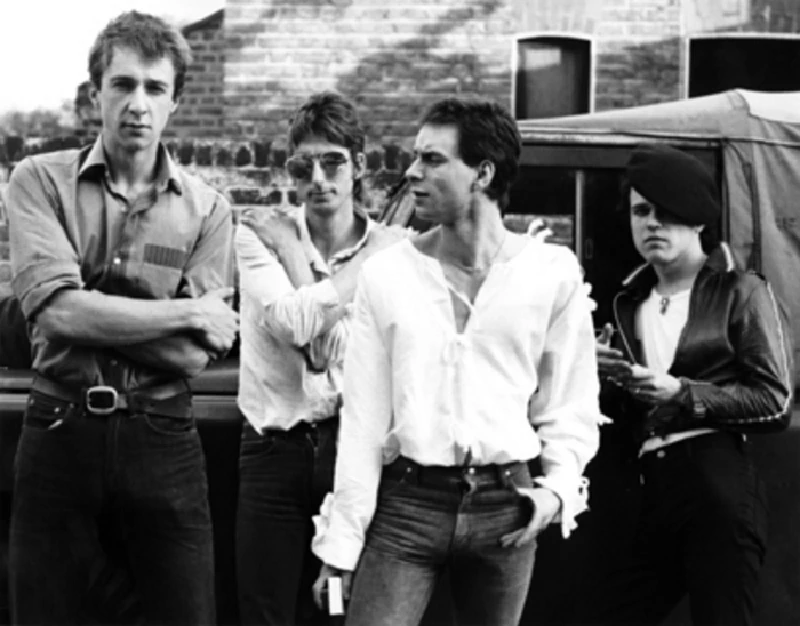
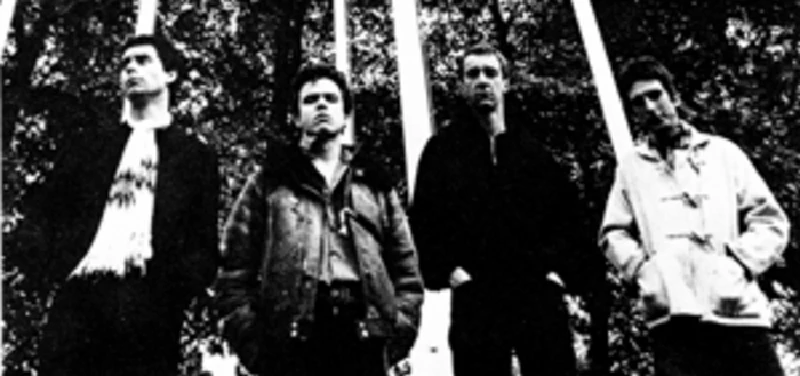
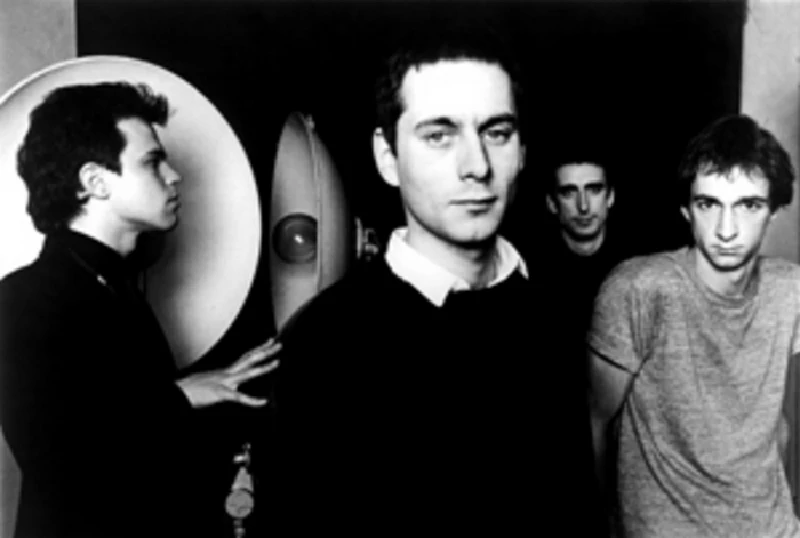
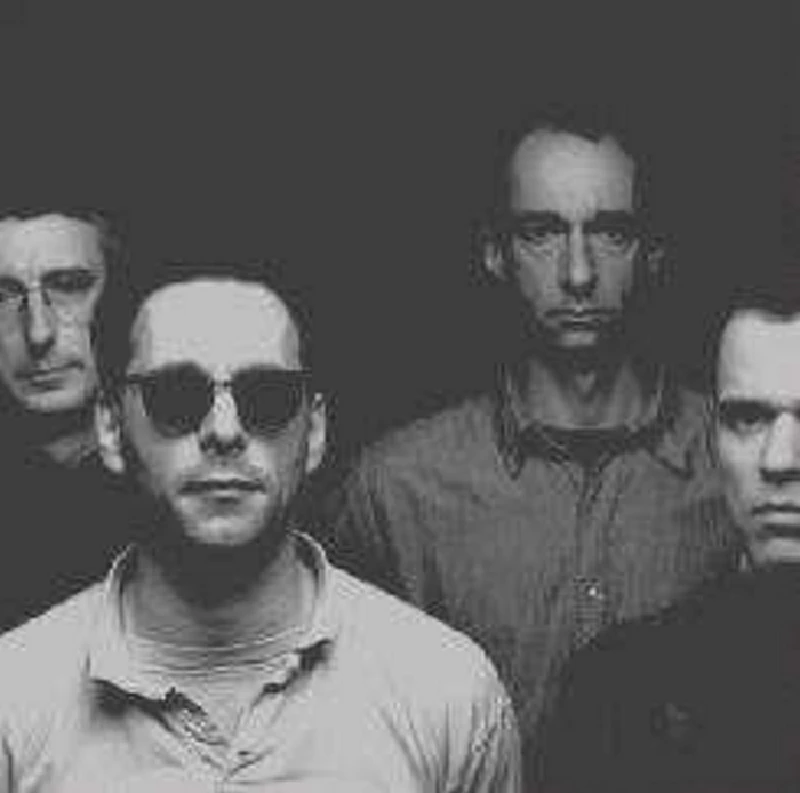
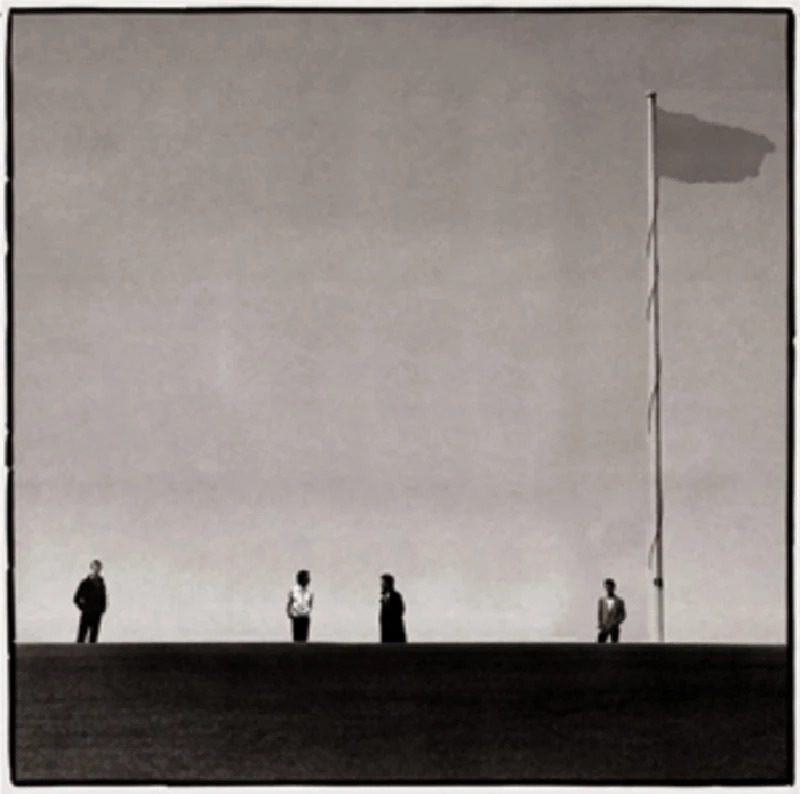
interviews |
|
Interview (2010) |

|
| Anthony Strutt talks to Wire bassist Graham Lewis at a gig in London about 'Red Barked Tree', their forthcoming new album |
live reviews |
|
Lexington, London, 15/4/2015 |

|
| At the Lexington in London, Adrian Janes witnesses a powerful performance from reinvigorated post-punk veterans, Wire |
soundcloud
reviews |
|
Wire (2015) |

|
| Competent eponymous fourteenth studio album from seminal post-punk outfit, Wire |
| Red Barked Tree (2010) |
| Object 47 (2008) |
| Send (2003) |
most viewed articles
current edition
Carl Ewens - David Bowie 1964 to 1982 On Track: Every Album, Every SongArmory Show - Interview with Richard Jobson
Bathers - Photoscapes 1
Colin Blunstone - Thalia Hall, Chicago, 16/7/2025
Visor Fest - Valencia, Spain, 26/9/2025...27/9/2025
Billie Eilish - O2 Arena, London, 10/7/2025
Robert Forster - Interview
Loft - Interview
John McKay - Interview
Editorial - July 2025
previous editions
Heavenly - P.U.N.K. Girl EPManic Street Preachers - (Gig of a Lifetime) Millennium Stadium, Cardiff, December 1999
Oasis - Oasis, Earl's Court, London, 1995
Beautiful South - Ten Songs That Made Me Love...
Trudie Myerscough-Harris - Interview
Pixies - Ten Songs That Made Me Love...
Prolapse - Interview
Simon Heavisides - Destiny Stopped Screaming: The Life and Times of Adrian Borland
Paul Clerehugh - Interview
Doris Brendel - Interview
most viewed reviews
current edition
Amy Macdonald - Is This What You've Been Waiting For?Sick Man of Europe - The Sick Man of Europe
Alice Cooper - The Revenge of Alice Cooper
Phew, Erika Kobayashi,, Dieter Moebius - Radium Girls
Davey Woodward - Mumbo in the Jumbo
Lucy Spraggan - Other Sides of the Moon
Blueboy - 2
Cynthia Erivo - I Forgive You
Philip Jeays - Victoria
Lapsley - I'm a Hurricane, I'm a Woman In Love
Pennyblackmusic Regular Contributors
Adrian Janes
Amanda J. Window
Andrew Twambley
Anthony Dhanendran
Benjamin Howarth
Cila Warncke
Daniel Cressey
Darren Aston
Dastardly
Dave Goodwin
Denzil Watson
Dominic B. Simpson
Eoghan Lyng
Fiona Hutchings
Harry Sherriff
Helen Tipping
Jamie Rowland
John Clarkson
Julie Cruickshank
Kimberly Bright
Lisa Torem
Maarten Schiethart